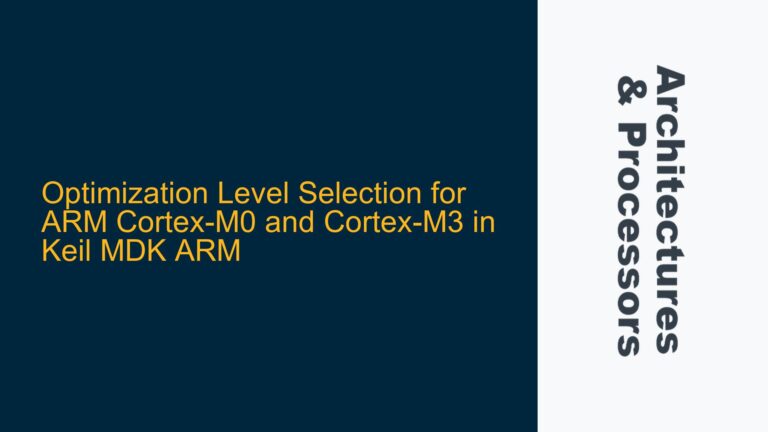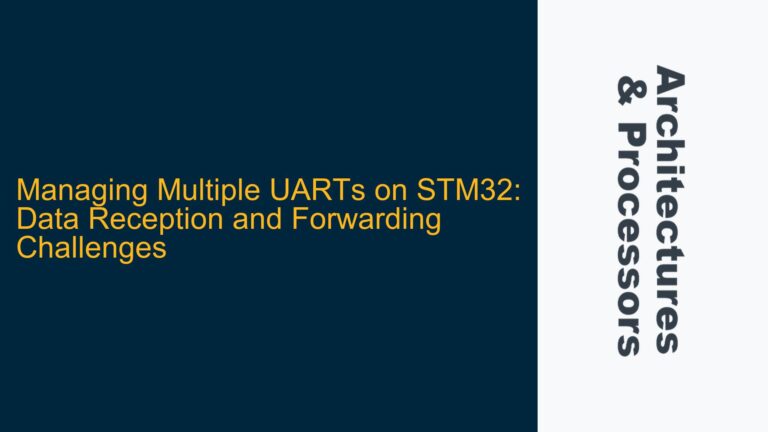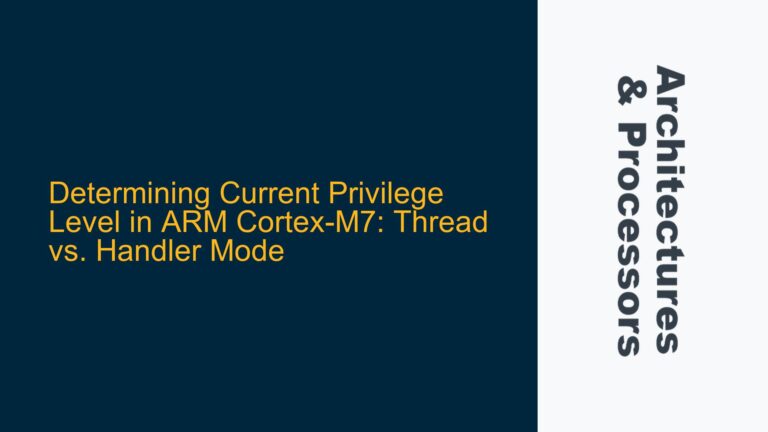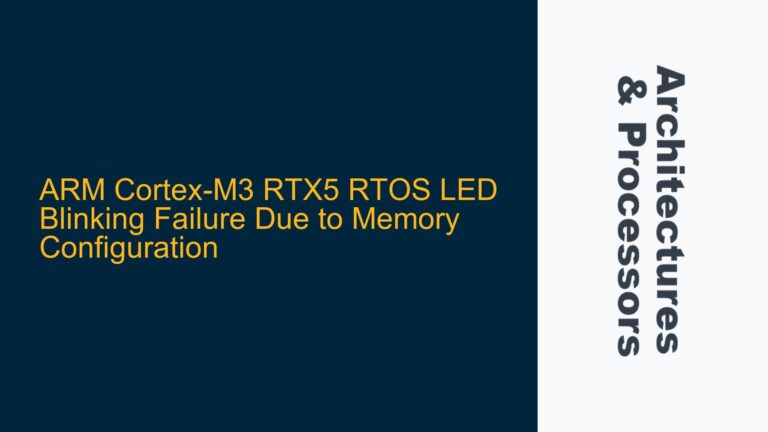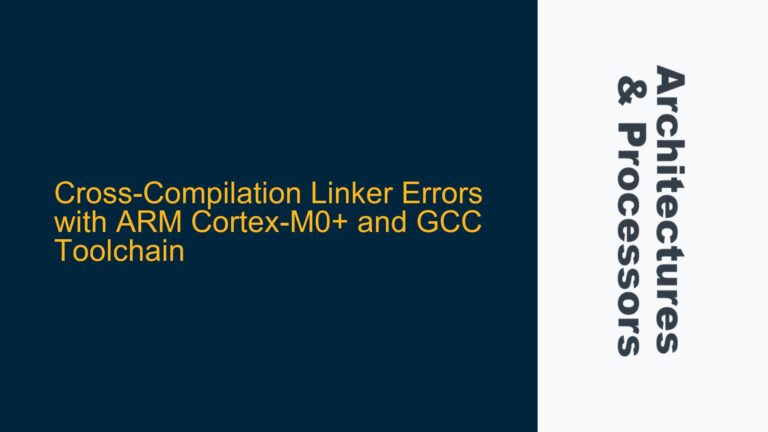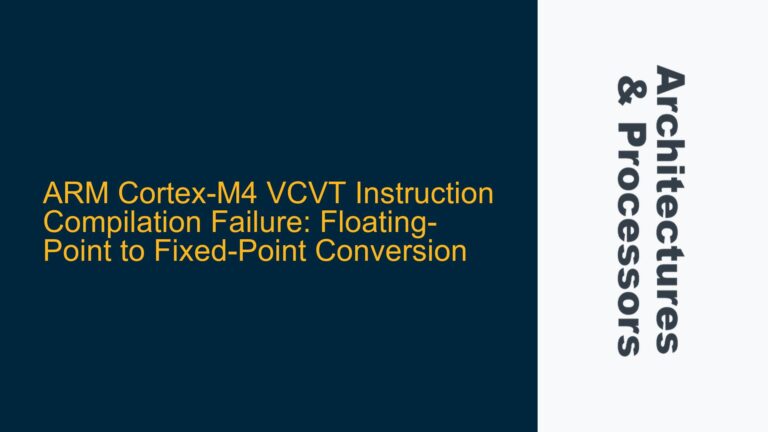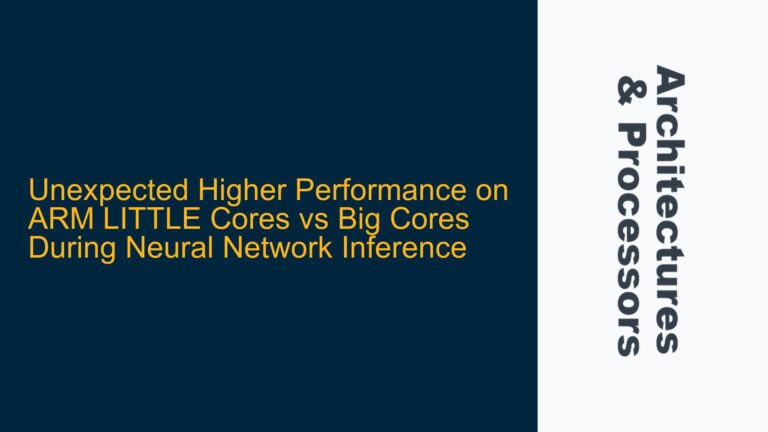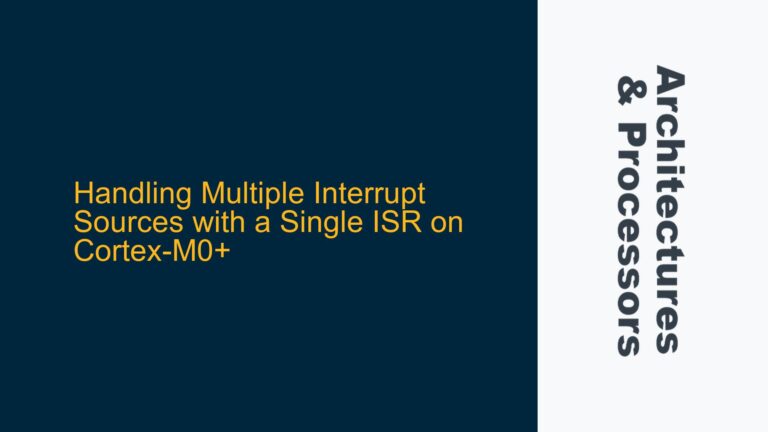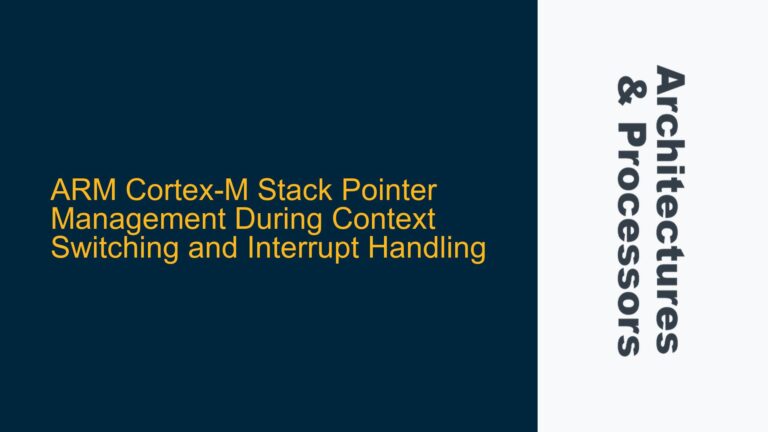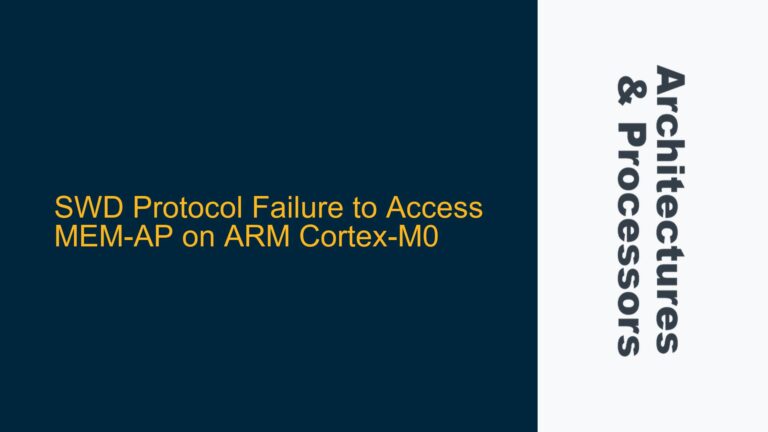Optimization Level Selection for ARM Cortex-M0 and Cortex-M3 in Keil MDK ARM
Understanding Optimization Levels in Keil MDK ARM for Cortex-M0 and Cortex-M3 When working with ARM Cortex-M0 and Cortex-M3 processors in the Keil MDK ARM environment, selecting the appropriate optimization level is crucial for balancing performance, code size, and debugging ease. Optimization levels in Keil MDK ARM range from -O0 (no optimization) to -O3 (maximum optimization),…
